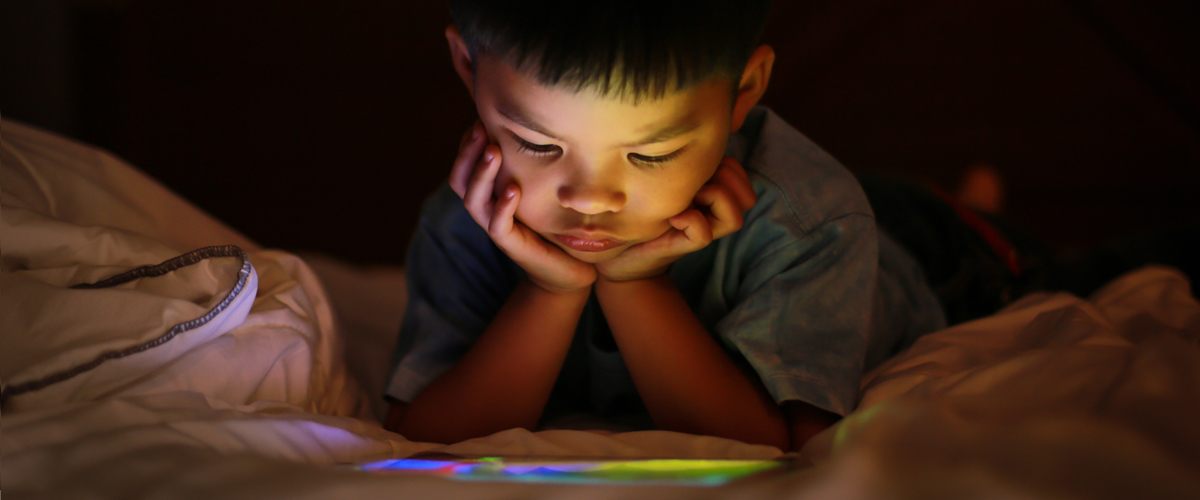Hello!
 Children today have a wide range of electronic devices at their disposal. They cannot imagine a world without tablets and smartphones.
Children today have a wide range of electronic devices at their disposal. They cannot imagine a world without tablets and smartphones.
Today’s technology has made it so that parents have to decide how to limit screen time. While digital devices can provide endless hours of entertainment and they can offer educational content, unlimited screen time can be harmful.1
The American Academy of Pediatrics recommends parents place a reasonable limit on entertainment media. Despite those recommendations, children between the ages of 8 and 18 average 7 1/2 hours of entertainment media per day, according to a 2010 study by the Henry J. Kaiser Family Foundation. It’s not only children who get too much screen time.
Many parents struggle to impose healthy limits on themselves too. According to the Kaiser Family Foundation, the average adult spends over 11 hours per day behind a screen.
It’s important to understand how too much screen time could be harming everyone in the whole family.
The Negative Effects of Too Much Screen Time
Too much screen time can be dangerous, regardless of whether you have the TV on constantly or if your entire family is staring at their phones.
 These are some of the findings from the research:
These are some of the findings from the research:
- Behavior problems: Children in elementary school who spend more than two hours per day on a computer or watch TV are more likely to experience attention, emotional, and social problems.
- Problems in education: Televisions in bedrooms of elementary school children make it harder for them to pass academic tests.
ObesityOverweight can be caused by too much sedentary activity such as playing video games or watching TV.1 - Sleep problems: Screen time before bed can lead to problems. Insomnia can be caused by the light emitted by screens, which interferes with the brain’s sleep cycle.2
- Violence: Children can become desensitized to violence if they are exposed to violent TV, movies, music, or video games. According to the American Academy of Child and Adolescent Psychiatry, children may eventually resort to violence to solve their problems and imitate what they see.
Digital Devices Can Harm Family Relationships
 Screen time is often discussed in terms of children. It’s important to remember that even adults can experience the same negative effects, such as obesity and sleep problems.
Screen time is often discussed in terms of children. It’s important to remember that even adults can experience the same negative effects, such as obesity and sleep problems.
Even if your electronic devices aren’t causing you any health problems, there is a chance that your relationship with your child could be strained.
In a 2015 survey by AVG Technologies, one-third of children reported feeling unimportant when their parents looked at their smartphones during meals or when playing together.
Even replying to a quick text message could be sending your child another message—that your phone is more important than he is.
Your child’s mental health and development could be affected if you interrupt his care by checking your phone constantly. According to a 2016 study, looking at digital devices can increase the likelihood of your child developing mental health issues like depression.
Also read:
- Technology is Revolutionizing different industry Sectors in 2025
- How to Delete Files and Folders on Mac
- Lionsgate's AI Deal
Establishing Family Rules With Electronics
It won’t help anyone to tell your child to put down his video games while you watch TV. For your sake and that of your child, it is important to establish healthy limits for electronics use.
 Here are a few household rules you might want to establish to curb screen time:
Here are a few household rules you might want to establish to curb screen time:
- No digital devices during family meals.
- No electronics use during family fun nights.
- No screen time in the car.
- No screens are allowed in bedrooms.
In addition, consider an occasional digital detox for the whole family. You can either set aside one weekend per month to be completely screen-free or create a night without screens once a week. This could benefit everyone’s emotional and physical health as well as the relationships within your family.
Thank you!
Join us on social networks!
See you!






